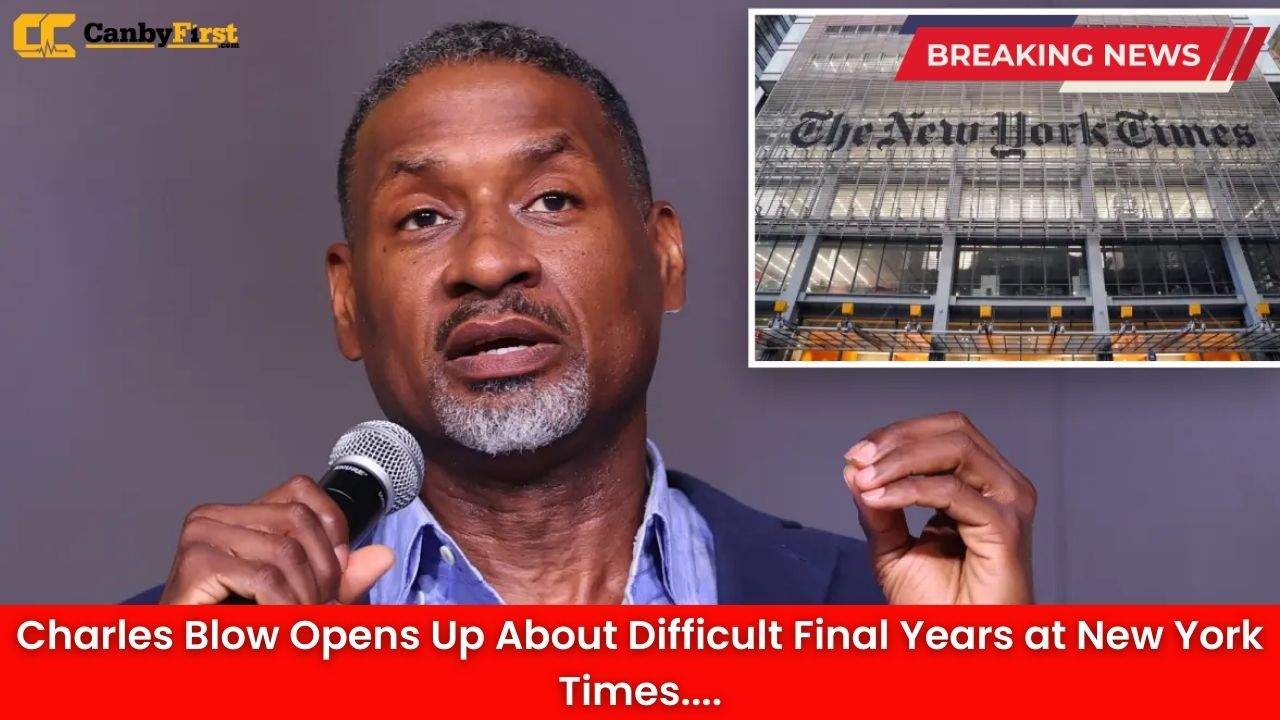New York, US: Veteran columnist Charles Blow, a prominent voice in American journalism, has candidly admitted that his final years at The New York Times were some of his most challenging, describing a period in which he “struggled to justify” staying at the outlet. Blow’s revelations shed light on the professional and personal toll of working within one of the world’s most scrutinized news organizations.
A Voice That Shaped Conversations
Charles M. Blow joined The New York Times in 2008 and swiftly became known for his incisive opinion pieces tackling issues of race, politics, and social justice. His columns often sparked both praise and controversy, elevating him into one of the most discussed voices in mainstream media. For more than a decade, Blow’s writing challenged audiences to confront uncomfortable truths about inequality, democracy, and culture in America.
But behind the highly visible platform, Blow has now revealed that not all was well. Speaking candidly, he explained that in his final years with the paper, staying on became increasingly difficult both professionally and personally. “Those last years weren’t my most pleasant,” Blow admitted, suggesting that his time at the paper ended less with triumph than with a reckoning over his own values and wellbeing.
Also Read
The Challenge of Staying the Course
Blow’s statement that he “struggled to justify” working at The New York Times points to the unique pressures of operating at the heart of American journalism. Writers and opinion columnists at the paper face both internal and external demands—balancing their editorial independence with the institution’s global reputation and editorial culture.
For Blow, the weight of that balance may have grown. Known for speaking forcefully on racial injustice, systemic inequities, and political upheavals, his work often struck at the very core of America’s divides. As the national landscape became ever more polarized in recent years, so, too, did the scrutiny and expectations for those offering commentary.
In an era when every word can trigger sweeping online reactions, the strain on journalists has intensified. Blow’s reflections suggest that these pressures, along with the personal toll of high-profile advocacy, contributed to his decision to leave.
A Career Beyond the Times
Although Blow’s name is nearly synonymous with his columns, his career has expanded far beyond the pages of The New York Times. He is also an author, with works such as his memoir Fire Shut Up in My Bones—which was later adapted into an opera—and The Devil You Know: A Black Power Manifesto. Both extended his influence well beyond daily opinion writing, solidifying his role not just as a columnist but as a cultural thinker.
His post-Times career appears to be focused on pursuing projects that align more closely with his passions and personal mission. Without the constraints of a singular newsroom, Blow has the freedom to choose how, and where, to continue shaping public debates.
The Cost of Visibility
The candor in Blow’s remarks underscores an important facet of modern journalism: the emotional demand on writers who center their work on issues of justice, identity, and social change. High visibility can be both empowering and exhausting. While the megaphone of a platform like The New York Times brings unmatched reach, it also places the writer under relentless scrutiny, often exposing them to criticism, political backlash, and personal sacrifices.
Blow’s experience serves as a reminder of the difficult balance between institutional loyalty and personal fulfillment—a balancing act many journalists grapple with in today’s fractured and fast-moving media environment.
Looking Ahead
Despite his acknowledgment of unhappiness in his final years at The Times, Blow’s legacy at the paper remains significant. His body of work over more than a decade brought challenging but necessary conversations to the forefront of national dialogue. For younger journalists, his willingness to now openly discuss the struggles behind the scenes may provide valuable perspective on both the rewards and the costs of working within legacy media.
As Blow turns toward new chapters, the question lingers about how legacy outlets like The New York Times adapt to support their most outspoken voices while also addressing the well-being of their contributors. Meanwhile, for Blow himself, stepping away seems less like an ending and more like a continuation—a chance to speak, write, and create on his own terms.












